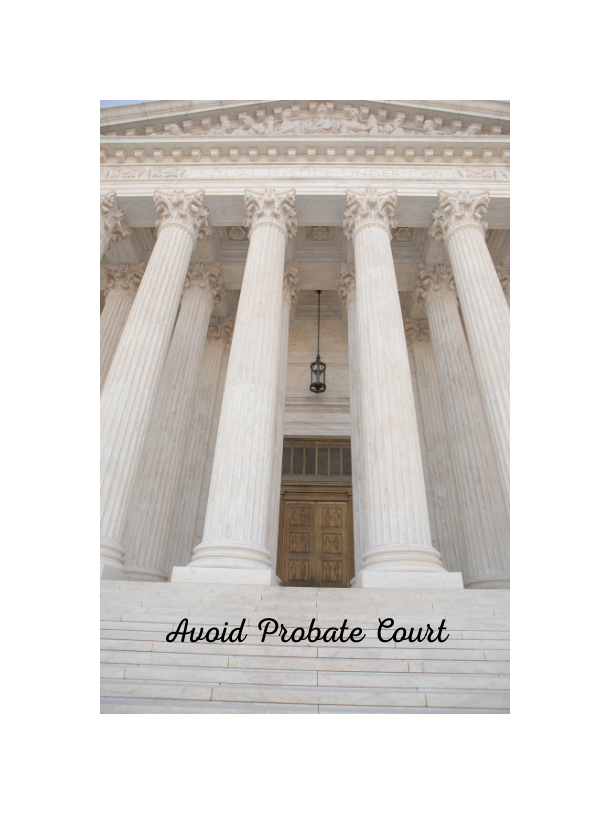Set Aside the Estate with a Pour-Over Will in Nevada
Probate in Nevada is costly and time consuming. In Nevada, having a properly executed pour-over will as part of an estate plan can avoid the full probate process.
Generally, when someone dies with a moderate amount of assets, one of the first questions is whether any of those assets have to go through probate? Even if the decedent had a revocable living trust, the successor trustee will need to know which assets, if any, are not in the trust and need to go through some type of court process.
That is where the pour over will comes into play.
What’s the difference between a Pour-Over Will and a Last Will and Testament?
Technically, a pour-over will is a type of last will and testament. However, there is a difference.
With a normal last will and testament, the person creating the will, the “testator”, details how and to whom their estate should be distributed upon death. This includes specific bequests of certain items or a fixed dollar amount to specific people.
A regular last will and testament is intended to be admitted to probate. Assets or accounts that do not otherwise have a beneficiary designation must go through probate. The probate court will oversee the process, including the distribution of the estate.
A pour-over will designates a living trust as its sole or primary beneficiary. Any trust-based estate plan prepared by an estate planning attorney will include a pour-over will. In essence, the will “pours” the assets into the trust.
Who Needs to Have a Pour-Over Will?
As mentioned above, anyone that has created a revocable living trust should ensure that they also have a pour-over will.
Unfortunately, I have see a situation where someone died with a trust that he created himself. However, he failed to create a pour-over will to go with the trust.

The decedent also failed to make sure that all of his assets were transferred to the trust. Consequently, those estate assets had to pass through probate. But, without a pour-over will, instead of the assets passing to the trust and then being distributed to the intended beneficiaries under the terms of the trust, the estate passed to his intestate heirs. This was not what he intended.
So, a pour-over will can act like a safety net to ensure that assets will be transferred to and distributed according to the terms of the trust.
Transferring Assets Into a Living Trust
The simplest way to avoid probate is to have a beneficiary listed. Beneficiaries, for example, can be listed directly on brokerage accounts or life insurance.
Or assets can be titled in the name of the trust during your lifetime. And the living trust lists the beneficiaries to whom the trustee is to distribute the assets.
While you can transfer assets to the trust by yourself, you may want to seek legal advice or assistance when doing so. You may have the attorney prepare the deed to transfer real property to the the trust.
Remember, if assets are not titled in your trust, they will be subject to a court proceeding. The question is, what type of proceeding. Read this article for the types of probate in Nevada.
Set Aside Proceeding
Historically, an estate must go through probate in Nevada if the total value of the probate estate is over $100,000. If it is under that amount, probate attorneys could petition the court to “set aside” the deceased person’s assets to the proper beneficiaries.

However, in 2021, the Nevada legislature amended the set aside statute. Now, an estate of any value can be set aside without probate administration if there is a valid pour-over used in conjunction with your trust as its beneficiary. See NRS 146.070.
For example, if the deceased person had a pour over will and a securities account worth $800,000 in her name individually when they pass away, such would have had be probated in the passed. With the new change in the law, the securities account can now be set aside to the trust without the legal process of probate.
The set aside process requires only filing a single probate court petition and holding a single court hearing. Assuming the petition is approved, the assets are transferred into your trust for distribution.
A great deal of money and time are saved by being allowed to use the set aside proceeding and not having to open a full probate administration.
In summary, Nevada law now allows us to avoid probate altogether upon your death if your Will’s beneficiary is an existing living trust. While we still have to go to court under Nevada’s set aside statute, such is much quicker and cheaper than a regular probate administration.
But if you want to avoid even having to petition the court for a set aside, make sure the all assets upon your death are owned or titled in the name of your trust.

